Terry Doe was initially impressed by this knight from Air Arms, but how has his view changed, if at all?
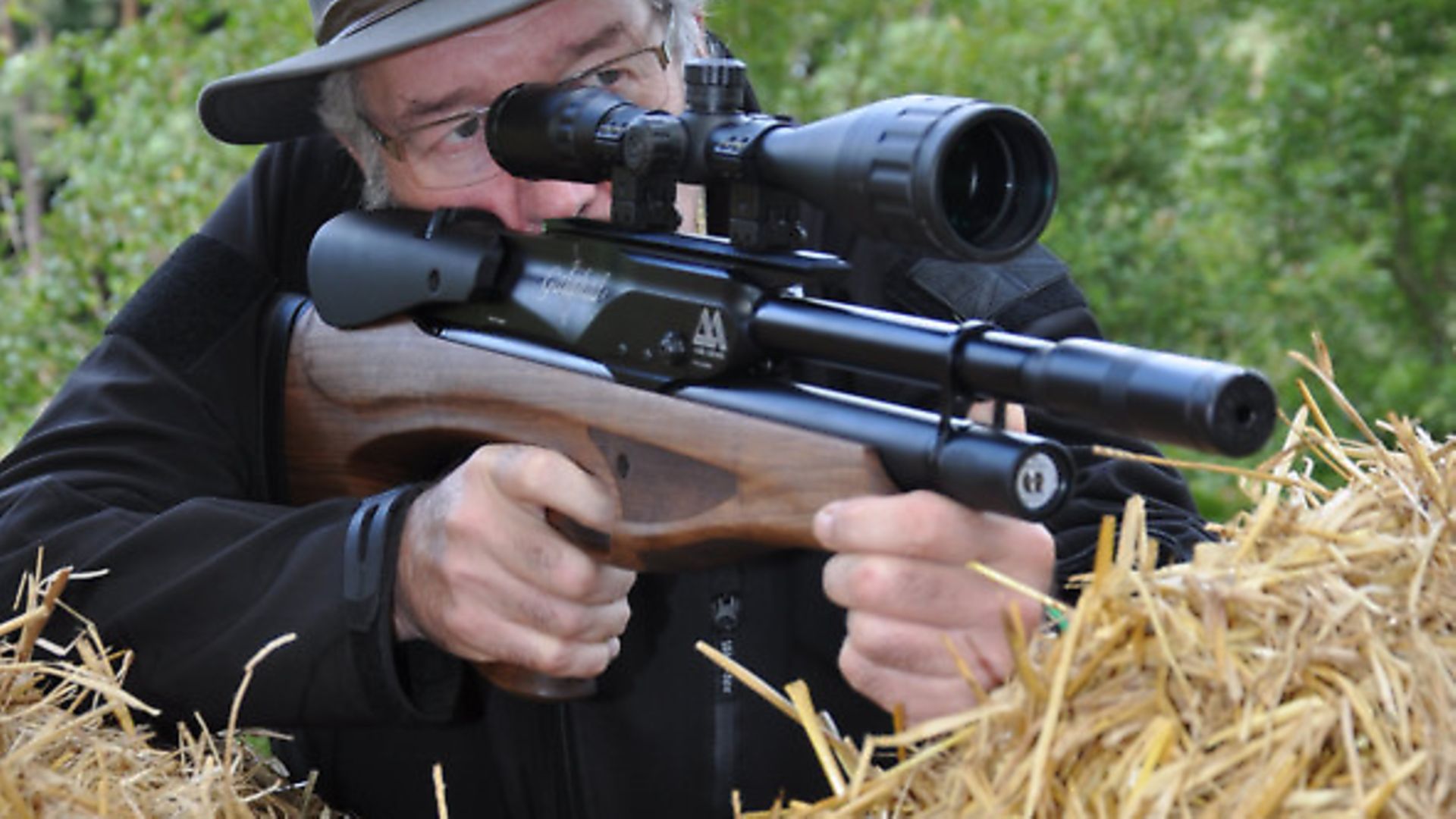 credit: Archant
credit: Archant
To do something different from my original test of the Air Arms Galahad, I not only added the optional silencer but I swapped the soft touch rubberised stock for a walnut one. How extremely radical, you’ll agree. As it turned out, it was a worthwhile exercise and I think I’ll be doing the same sort of thing to explore other rifles.
Stock change
After some fairly basic test sessions at the factory, I’d convinced myself the black stock was the version for me. I was wrong. I now prefer the walnut, although I’m not entirely sure why. I know I prefer the look of walnut, while the rubberised woodwork will definitely shrug off the demands of full-on field use. And after squiring the Galahad about for a month or two, I think it deserves the luxury of a walnut stock, rather than the pure practicality of the black one.
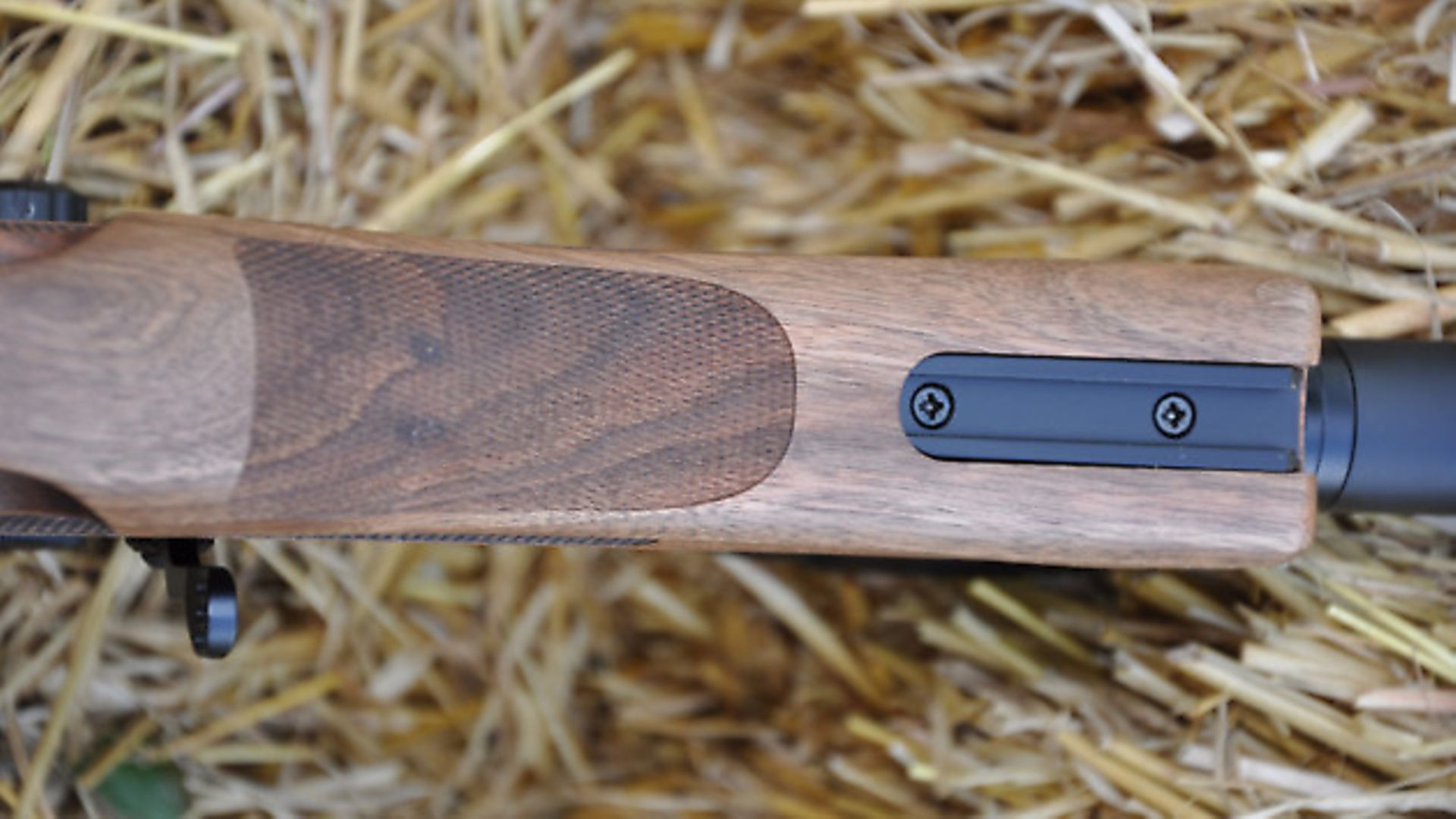 credit: Archant
credit: Archant
The balance of the rifle is exactly the same, and there’s virtually no difference in all-up weight, but I oiled the walnut a couple of times and I enjoyed doing that. Regular applications of oil will impart a deeper, more intense finish to the grain. The main lesson, as ever, is to allow plenty of time and as much hands-on experience as possible before making any major choice.
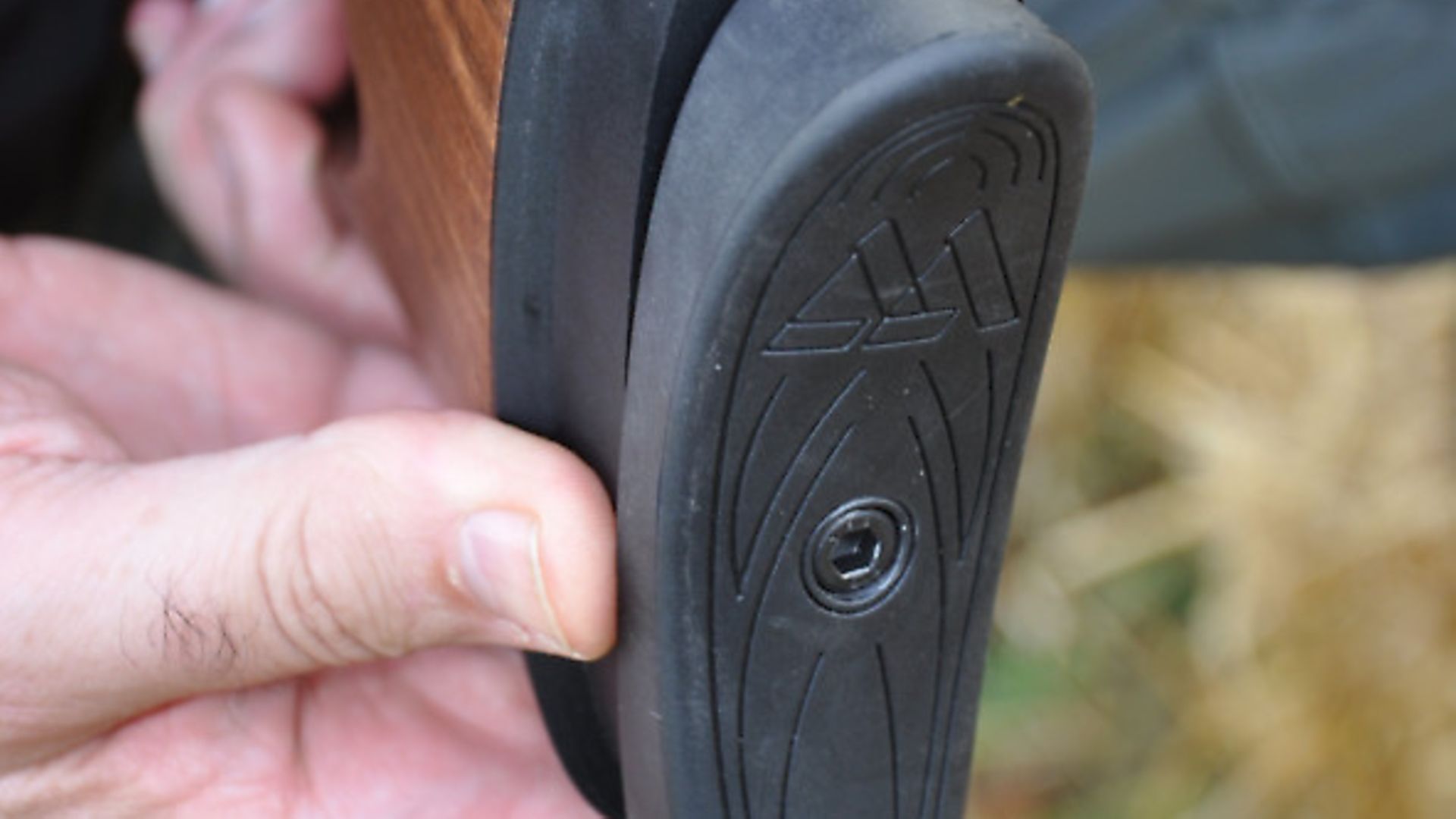 credit: Archant
credit: Archant
Silencer effect
Basically, if you’re getting a Galahad, get the Mini Q-Tec silencer with it. This chunky little moderator does a fine job of stifling whatever muzzle noise gets past the barrel shroud (and that’s not much) but the visual balance the Mini Q-Tec provides entirely justifies its inclusion.
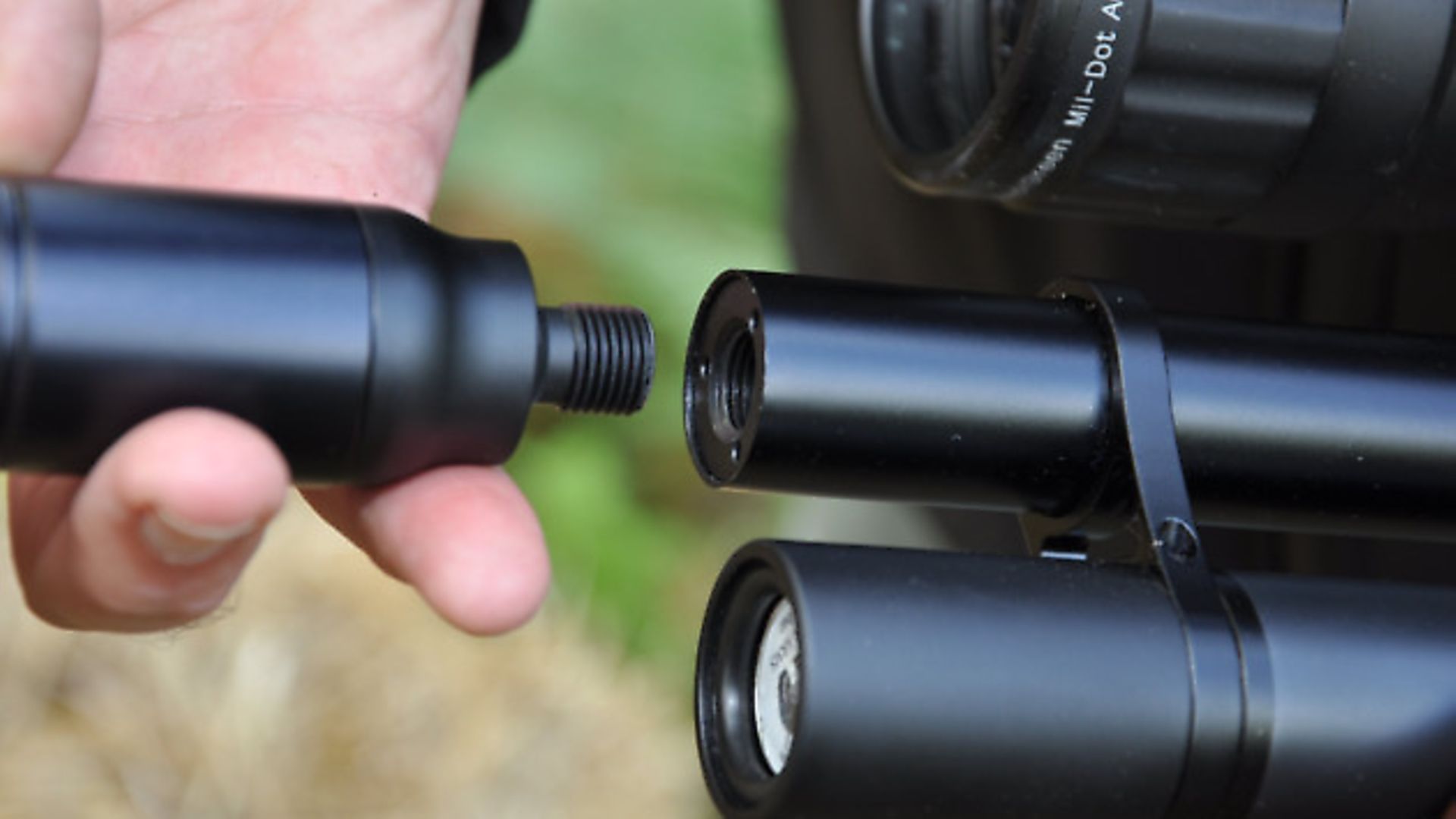 credit: Archant
credit: Archant
There have been some strident views expressed about the look of the Galahad – most mentioning the ‘too large’ gap between the rifle’s barrel and its cylinder. Fitting a Mini Q-Tec won’t close that gap, but it will alter the perception of it. In short, the Q-Tec works well and makes the Galahad prettier.
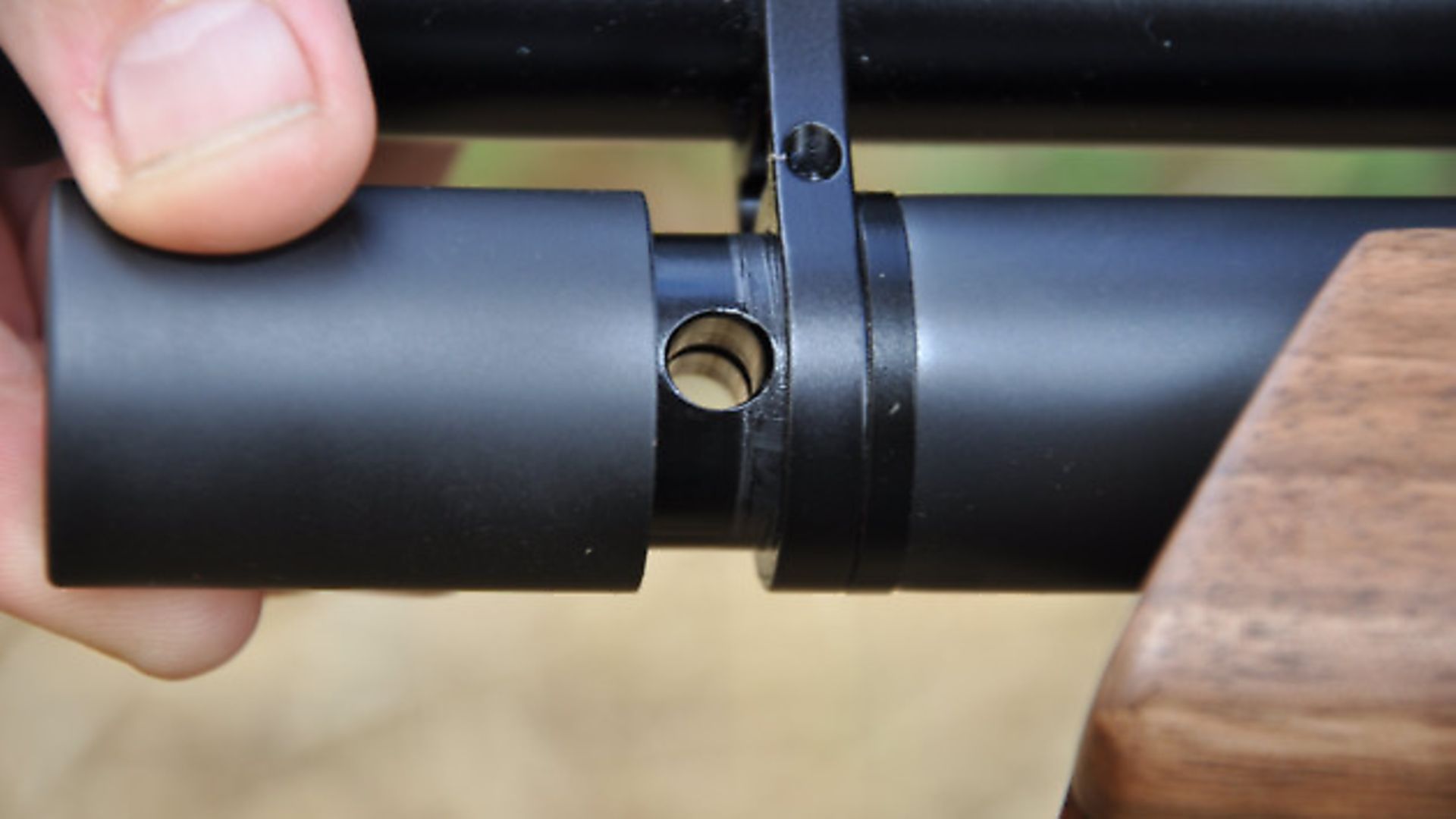 credit: Archant
credit: Archant
Regulator efficiency
I previously reported a 9 f.p.s. average consistency readout over 108 shots from this .177 test rifle. I can report no change at all in the Galahad’s performance, despite a traditional soaking when testing some night hunting gear. Fitting the silencer had exactly no effect, either – it’s business as usual.
I’d still rather do without the extra complication of a regulator, in principle, but as long as this one maintains its role as the gift that keeps on giving, I’m prepared to change my mind. For the record, it’s almost impossible to see the result of even a 15 f.p.s. shot-to-shot variation at legal limit hunting ranges. I’m impressed with what Air Arms has developed.
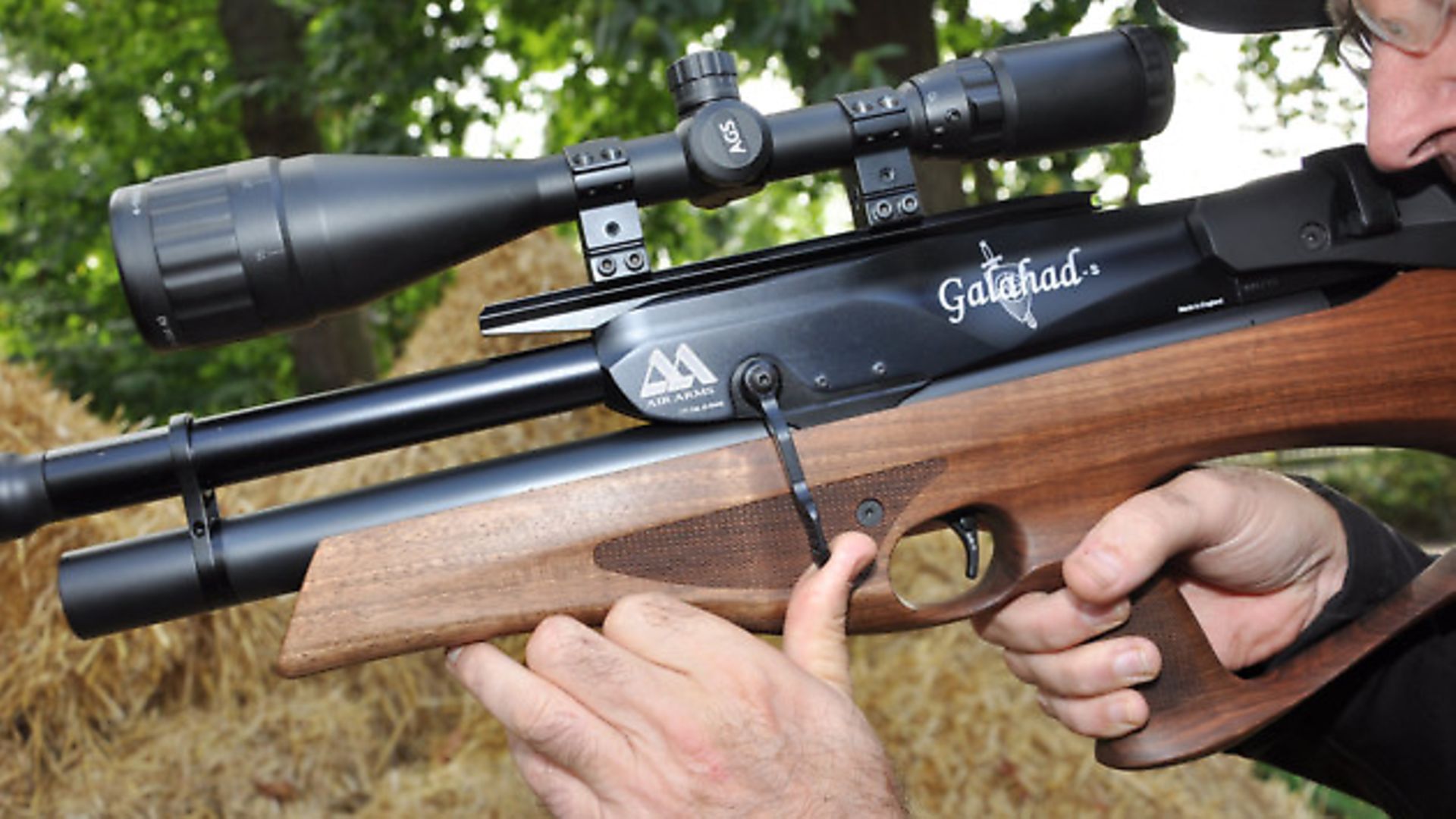 credit: Archant
credit: Archant
Accuracy
Short answer, again – this rifle will do everything an airgun of this price should do, plus a little bit more in terms of user-friendship, thanks to its balance, pointability and stability on aim. For the stats enthusiasts, I reproduced the fingertip-sized groups I bragged about in my first test. It shoots straight, and easily maximises its shooter’s talent. That’s about all anyone can ask, really.
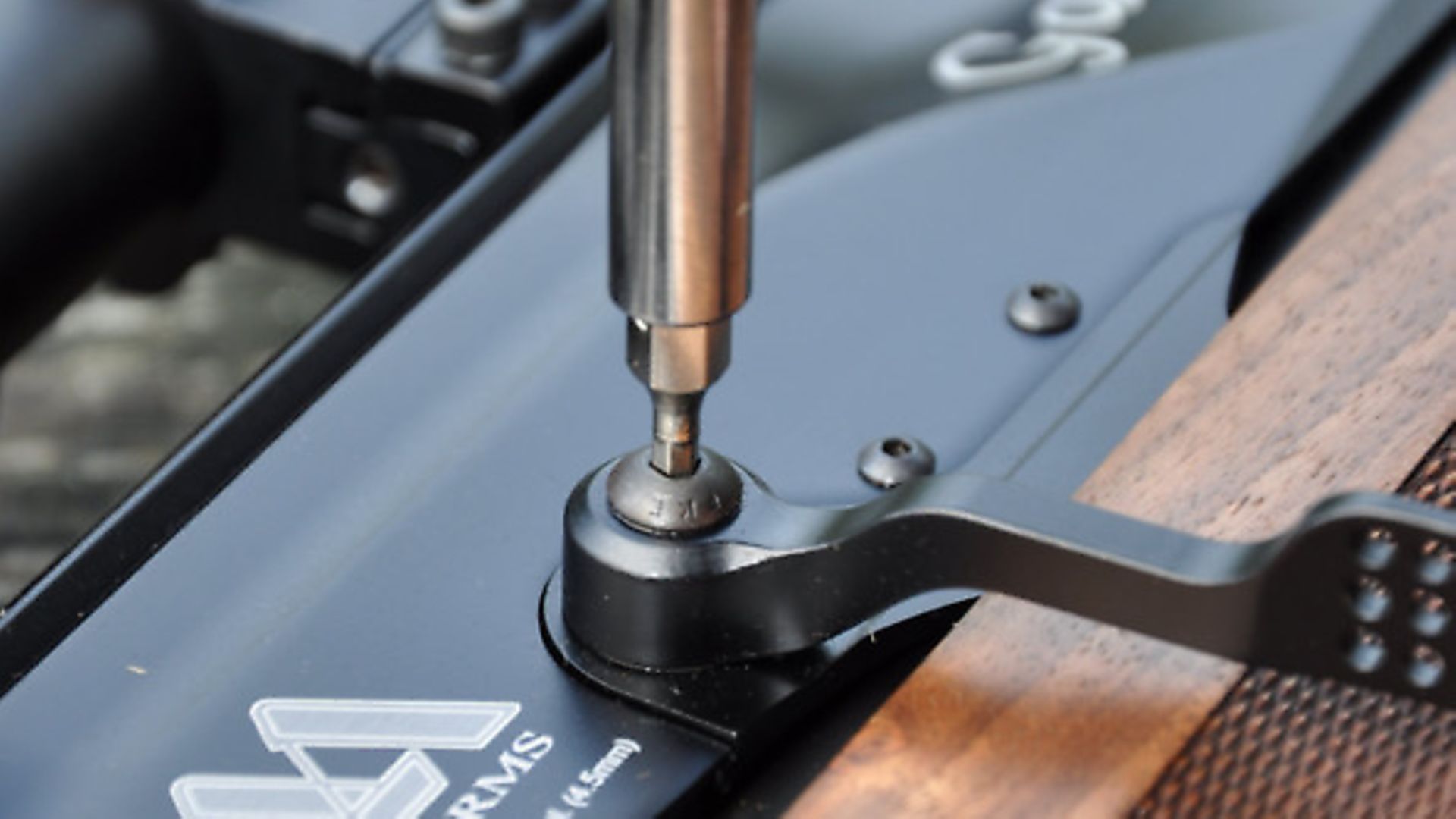 credit: Archant
credit: Archant
Verdict
Some shooters don’t like bullpups – or ‘sportpups’, as Air Arms insist on calling the Galahad. They baulk at the compact design and unusual configuration of these guns, but even these people can change their tune when they get one in their shoulder. I’ve seen it happen with the Daystate Pulsar and Renegade, and the Galahad will have the same impact.
I’d recommend this rifle to anyone looking for a superior sporter that does things its own way. I became used to the ‘push-pull’ cocking and loading lever within minutes and our working relationship became smoother with every encounter. Similarly, changing the lever to suit a southpaw required just a hex wrench and a few minutes – I even swapped it over in the field. This system is the perfect complement to the Galahad’s ambidextrous stock, and whilst the magazine insertion point can’t be fixed, this is a genuine left-hand option.
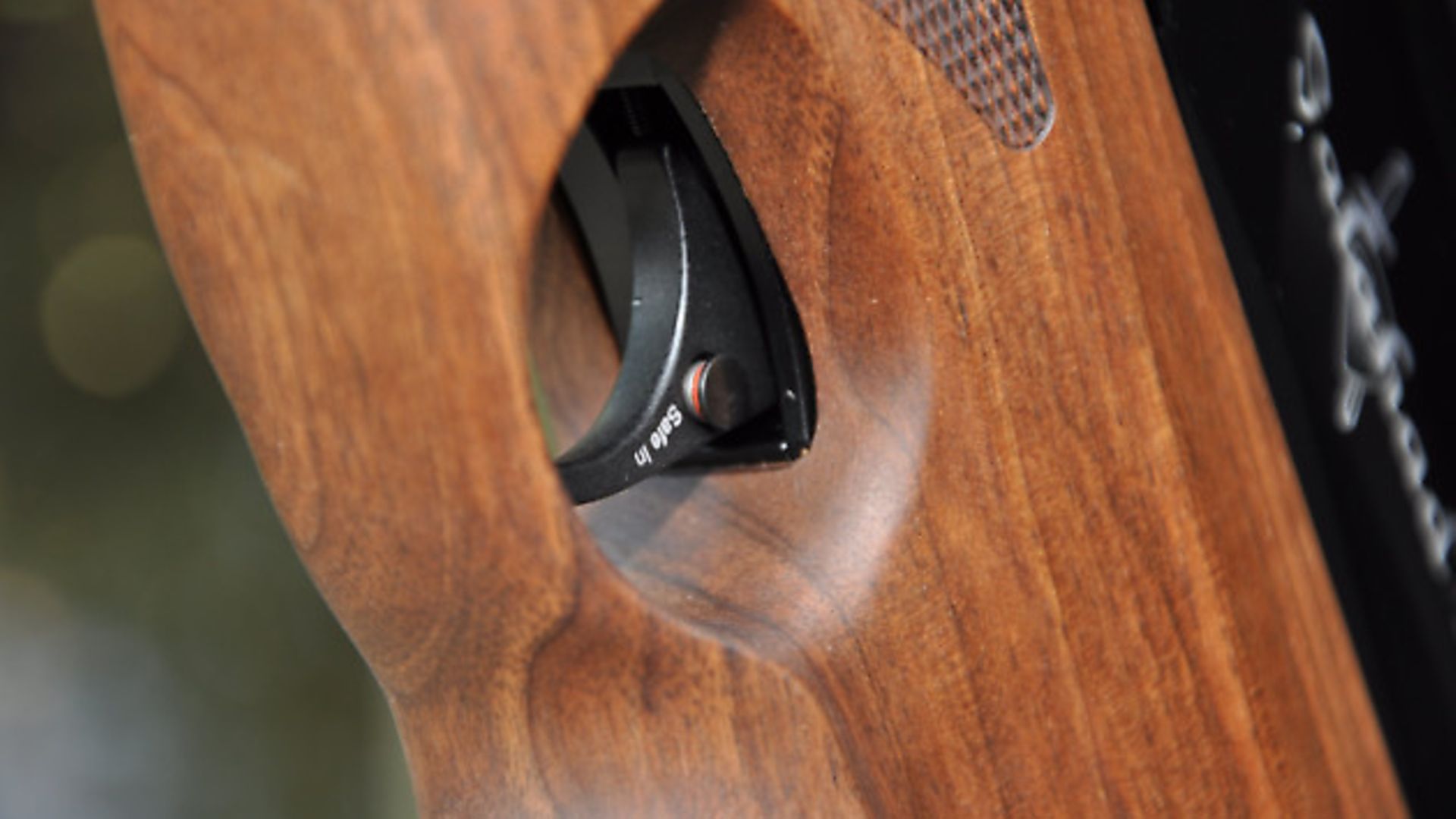 credit: Archant
credit: Archant
The trigger worked impeccably throughout my test and there was no ‘compromise’ on performance due to the need for an extended, articulated actuating arm between the trigger blade and its mechanism. This used to be a concern when bullpups first appeared, but the ones I’ve used lately have efficiency and precision engineered in as standard.
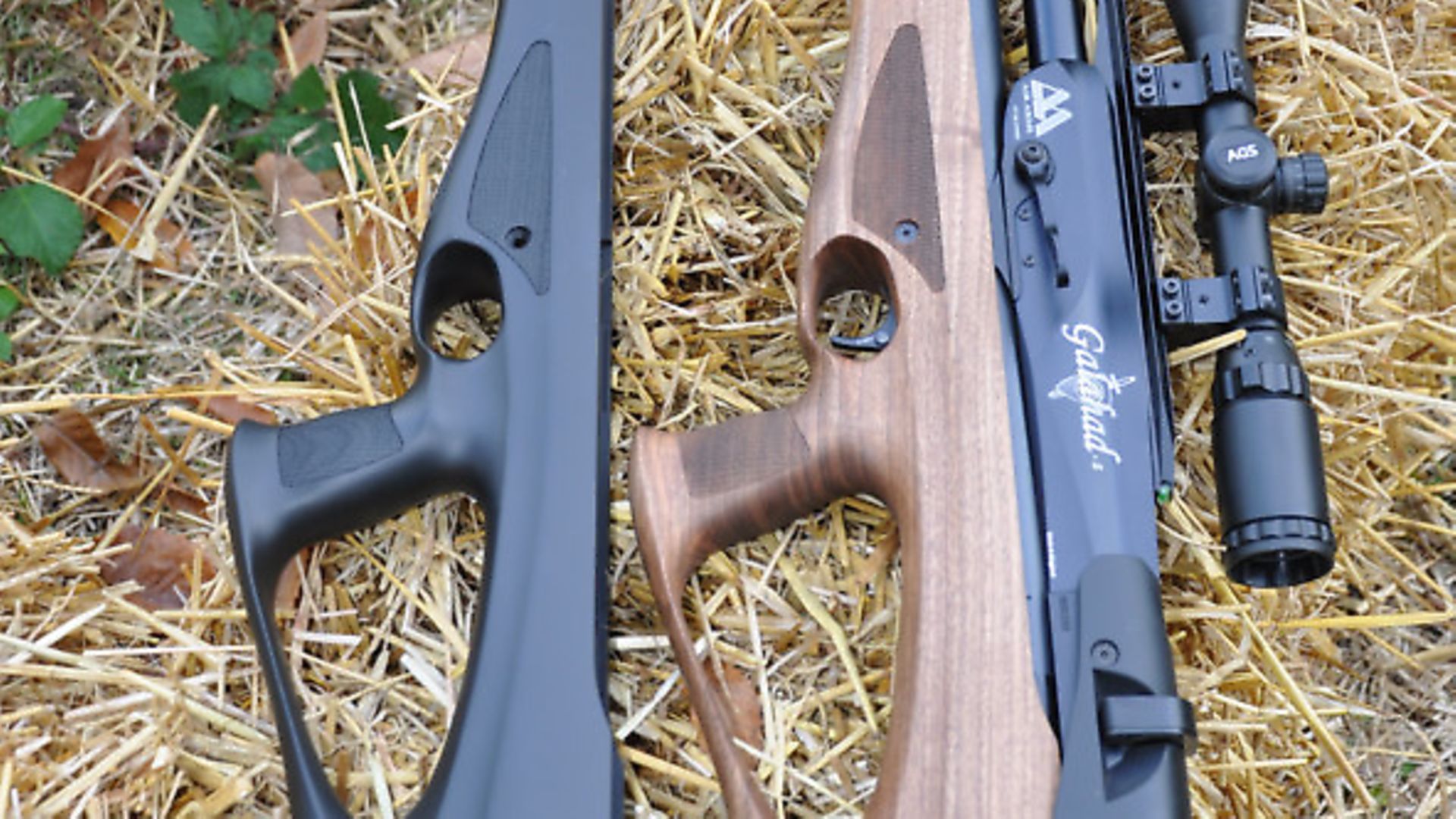 credit: Archant
credit: Archant
The Galahad’s build-quality, ergonomics, performance, and yes, its looks, have endeared the rifle to me. I’d very much like to add one to my collection. It represents a fairly radical departure from what Air Arms are famous for and I applaud the company for taking such a bold step.
The knight is young – but I predict a great future for it.
Price: £1241.50 as tested, with regulator. Non-regulated model – £1180.
SPECIFICATIONS
Manufacturer: Air Arms
Model: Galahad
Country of origin: UK
Type: Pre-charged, multi-shot/single shot sporter/match rifle
Calibre: .22, .177
Cocking: Bolt action
Loading: Via removable, rotary 10-shot magazine, or single-shot tray
Trigger: 2-stage, adjustable for length of stage, let-off weight and shoe position
Safety: Manual, rotary
Stock type: Ambidextrous, thumbhole walnut, with adjustable butt pad
Weight: 3.6kg (8lbs) Unscoped.
Length: 698mm (27.5 ins)
Barrel: 395mm (15.55ins)
Fill pressure: 210 bar (non-regulated version 190 bar)
Shots per charge: 120 in .22 (regulated), 110 in .177 (regulated)
Variation over 60 shots: 9 fps for .177 on test
Average energy: 11.6 ft.lbs.
Options: Various models, plus choice of Picatinny or dovetail rails, FAC, high-power model, Q-Tec silencer and stock spacers
Prices: The basic model - ie carbine and rifle length.
beech/non-reg/12ft. lbs./.177 and .22 with Picatinny or standard dovetail - £1059.00. With reg - £1120.50.
Black soft touch /non-reg /12 ft.lbs. /.177 and .22 - £1079.00. With reg - £1140.50.
Walnut/non-reg/12ft.lbs./.177 and .22 - £1180.00. With reg - £1241.50
All include: Two 10-shot pellet magazines plus probe charging adaptor
_____________________
More from Air Arms:
Gun test: Galahad
Gun test: RSN 70
Gun test: TX200HC MKIII